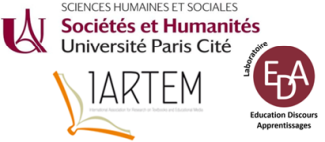Major problems in the EU and in the world regarding health, environment and climate-change, constitute an enormous challenge for the continued prosperity of citizens and countries. The solutions to the problems are complex and increase the demand for cross-border, North-South EU, educational and intercultural collaboration in the educational sector at Higher Education Institutions (HEI). The SustainComp project is based on partnership between four HEIs in the Czech Republic, Slovenia, Norway and Denmark focused on the development of a much needed future-oriented curriculum. The need for this stems from the current lack of a curriculum within sustainable development at HEI bachelor level. This interdisciplinary and cross curricular curriculum addresses environmental, health and climate related problems via innovative, digital and project-oriented and problem-based teaching methods, combined with Collaborative Online International Learning (COIL) for students. A full-scale-pilot of the new curriculum and the educational resources was conducted in fall 2023 at UCL in Denmark as a 10 ECTS course involving 35 students. The SustainComp curriculum was integrated in a regular English course and included interdisciplinary co-teaching in the topics of 'Sustainable Diets', 'Gender and Sustainable Development', 'Resurces, Inequality and Sustainability', 'Susainable Consumption of Energy Resources'. Research indicated that students developed sustainable competences in the form of critical and innovative thinking, interpersonal skills, cognitive, socio-emotional and behavioural competences and transversal skills, such as: intrapersonal skills, global citizenship, digital media and Information literacy. There were indications of students experiencing challenges with this international curriculum, because of language- and cultural barriers. The application of synchroneous and asynchroneous online teaching also included digital challenges for both teachers and students. The results will be included in the final version of the SustainComp Curriculum which will be relevant for teacher, nutrition, environmental and nurse education. The curriculum will be available online in English via Open Access in fall 2024 for students and teachers at HEI's. In a wider perspective, the SustainComp platform provides opportunities for further international collaboration on development of educational resources for teaching ESD and scaffolding of HEI teachers and students in dealing with the the associated challenges of climate-change, globale warming and environmental emergencies.
References:
Boeve-de Pauw, J., Olsson, D., Berglund, T., & Gericke, N. (2022). Teachers' ESD self-efficacy and practices: A longitudinal study on the impact of teacher professional development. Environmental Education Research, 28(6), 867-885.
Gaarsmand & Ruge (2023) Sustainability integrated in teaching activities in teacher education'. To Teach is to Build, SL.
Rieckmann, M. (2017). Education for sustainable development goals: Learning objectives. UNESCO publishing.
Ruge, D., Johannsen, H. D., Graf, S. T., Kostanjevec, S., Kozina, F. L., Reissmannová, J. S., ... & Vik, F. N. (2022). Project SustainComp-State of the art report.: A Case Study of Four Higher Education Institutions. Norway, Czech Republic, Slovenia and Denmark.
- Poster

 PDF version
PDF version

